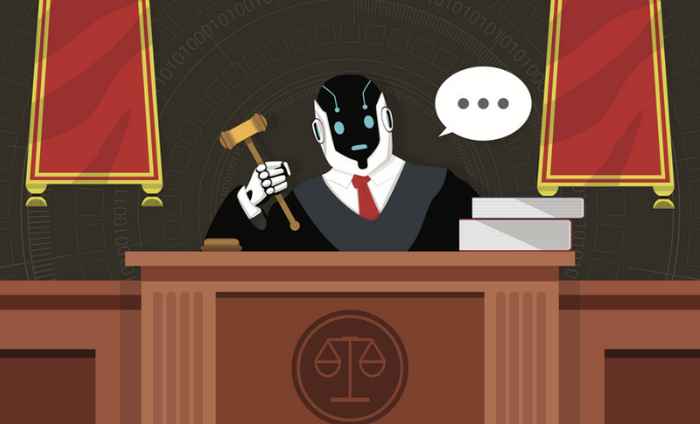Will AI make lawyers redundant?
Amsterdam Law School
8 April 2024

Why is it important to look at how legal professions are changing?
'AI is on the rise. Economists are looking at which jobs will be most affect by technology and become redundant, for example. But the content of work is also changing. ChatGPT-like technology is very focused on language. So, it's not wild to think of lawyers when a profession is affected. In previous studies, legal services have already come up very high. That group started to become an important case study.'
How can you use AI in legal professions?
'We do not know now in what way and at what scale AI is used in legal professions. There are already useful applications: think of searching, analyzing, and summarizing large chunks of text. It normally takes lawyers a lot of time to read contracts and files properly. That's something AI can do well, too. A lot more controversial is letting AI take over decisions. But it is moving in that direction. There are experiments, for example, with AI predicting outcomes of court cases.'

A lot more controversial is letting AI take over decisions. But it is heading in that direction
What exactly is controversial about that?
'Once you leave decisions to a machine, you have to trust it to make a good decision. This is a hot issue in the debate: to what extent can you trust decisions to a machine? There are also ethical aspects to this. Citizens must be able to hold the government accountable. But to what extent can you hold a machine accountable and control it? That can come at the expense of transparency. On top of that come privacy issues if you allow a machine to use large data containers.'
Are certain legal professions likely to disappear because of AI?
'Lawyers who perform the most routine jobs are the easiest to automate. Think of legal secretaries and legal assistants. People who go through thick files can still do that, but you can wonder if you need as many people as possible if AI lends a hand.'
Our students are engaging in it, forcing us to engage in it as well
How will you chart how the legal field is changing?
'We start by identifying what new skills are important in legal professions. That goes beyond "button knowledge". For example, how do you evaluate outcomes that AI generates for you? Those are not always accurate and can be biased. ChatGPT, for instance, because of the input it receives, more often than not assumes that influential scientists are men. You have to be able to look at that critically and to do so, it's important to understand how the technology works. Eventually, I want to look at as many legal professions as possible, but to delineate the research; we are starting with lawyers.
Overall, are you hopeful about the entry of AI or do concerns dominate?
'I have mixed feelings about it. There are promising sides to it. On the other hand, the concerns are also justified. In any case, the genie is out of the bottle: we have already seen the breakthrough to a wider audience with ChatGPT. The debate should no longer be about whether we should use AI. You can't escape it. Our students are also engaging in it, forcing us to engage in it. It is important to ensure people are well-equipped to deal with technological change. Interestingly, the people most at risk of losing their jobs are the least likely to invest in new technological skills. Ultimately, regulation is important: legislators must define what companies can do. But that only goes so far. You have to give people who work with it the tools to do that to the best of their ability.'